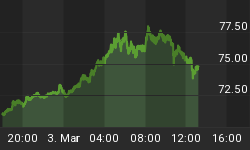A couple of weeks after Brexit, and the world has not ended. Indeed, in the UK the fallout seems relatively tame. Sterling has weakened substantially, which will increase UK inflation relative to global inflation; but it will also help UK growth relative to global growth. That's not a bad tradeoff, compared to predictions of the end-of-days. Although I am not so sure I like the tradeoff from Europe's perspective...
There are a number of UK property funds that have been gated - but this appears to be not so much a Reserve Fund moment, and certainly not a Lehman moment, but just a natural reaction when a fund gives broader liquidity terms than the market for the underlying securities offers.
I think the property panic is probably overdone. It is partly triggered by fears that the financial center is going to leave London. This strikes me as absurd, having worked for several of the institutions that have offices in Canary Wharf. I checked my gut reaction with a friend who actually headed up a large banking institution for a time. His answer was "you are right to be very skeptical: English, availability of workforce, taxation, labor laws, contract law and legal framework. There will be some shifting at the margin but that's it." Brittania is not about to sink beneath the waves, folks.
Were UK property values overinflated? At least UK home prices don't appear much more out-of-whack than US home prices do. The chart below (source: Bloomberg) shows the UK national average home price from the Nationwide Building Society (in white) versus the US median existing home sales price.

The picture looks more concerning if, instead of median home sales, you use the Case-Shiller Home Price Index as a comparison (see chart, source: Bloomberg). But while the CS20 is a superior measure of home prices, I'm always a bit wary of comparing two series that are constructed methodologically very differently. Still, this comparison would suggest UK prices have risen more than their US counterparts.

These comparisons are all on residential property, and I am comparing two markets which are likely both a bit overheated. But the scale of decline in the UK property funds seems to me to be too large relative to the overpricing that may exist, and I suspect it is more due (as I noted above) to the structure of the funds holding the property - which would suggest, in turn, that halting redemptions is the right thing to do to protect existing investors who would be disadvantaged if the portfolio was liquidated into a market that is not designed to have daily liquidity. Of course, the right answer is to not offer those liquidity terms in the first place...
One little niggling detail, however, deserves mention. I noted that UK home prices do not appear terribly out-of-whack relative to US home prices. The problem is that US home prices themselves appear out-of-whack by roughly 15-20%. The chart below (source: Bloomberg; Enduring Investments calculations and estimates) shows median home prices as a multiple of median incomes. What is apparent is that for many years these two series moved in lock-step, until the bubble; the popping of the bubble sent everything back to "normal" but we're back to looking bubbly.

That said, I don't believe the current drop in listed UK property funds is a rational response to correcting bubble pricing, and it's probably a good opportunity for cool-headed investors...and, more to the point, cool-headed investors who aren't expecting to liquidate investments overnight.
P.S. Don't forget to buy my book! What's Wrong with Money: The Biggest Bubble of All. Thanks!
You can follow me @inflation_guy!
Enduring Investments is a registered investment adviser that specializes in solving inflation-related problems. Fill out the contact form at http://www.EnduringInvestments.com/contact and we will send you our latest Quarterly Inflation Outlook. And if you make sure to put your physical mailing address in the "comment" section of the contact form, we will also send you a copy of Michael Ashton's book "Maestro, My Ass!"
















